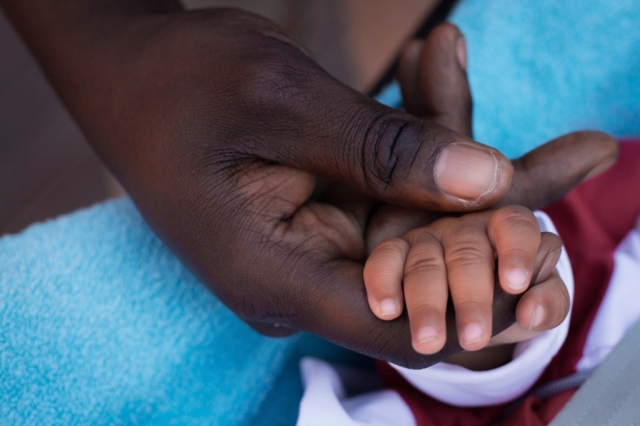According to the CDC, a pregnancy-related death can occur not only during pregnancy but also within one year after the end of pregnancy. There has been a steady increase in U.S. pregnancy-related deaths, but Black mothers are disproportionately affected.

Dr. Joia Crear Perry
In a joint investigation, NPR and ProPublica collected more than 200 stories from Black mothers, and revealed that “the feeling of being devalued and disrespected by medical providers was a constant theme.”
Black mothers from around the country told terrifying stories about how doctors wouldn’t believe them about health conditions until it was almost too late and even regularly dismissed their pain. These stories revealed how Black women are facing these issues regardless of education and income.

Shalom Irving, Ph.D.
The publications also highlighted the story of Shalon Irving, a 36-year-old mother and an epidemiologist from Atlanta who collapsed and died three weeks after giving birth. She insisted to nurses, “It just doesn’t feel right” and was sent home anyway with only a prescription.
As reported by NPR, Irving was researcher working to eradicate disparities in health access and outcomes who has become a symbol of one of the most troublesome health disparities facing Black women in the U.S. today: disproportionately high rates of maternal mortality.
Chronic stress caused by racism outside of the healthcare system also influences the health of Black mothers, reproductive justice advocate Elizabeth Dawes Gay, MPH, wrote for The Nation.
“Black people experience chronic stress resulting from exposure to overt and covert racism and micro-aggression, which can range from something as basic as intentionally avoiding eye contact to the extreme of being harassed, abused, or killed by police,” Gay wrote.

Erica Garner on Time.com
Some believe this chronic stress contributed the tragic death of activist Erica Garner, daughter of the late Eric Garner. Vox reported that the stress of her father’s chokehold death by police, combined with her chronic health issues, could be the reason why the 27-year-old mother died just four months after giving birth to her second child.
“The US has failed to deal with its high rates of maternal mortality on many fronts — particularly for women of color,” Vox staff writer P.R. Lockhart wrote.
These grim statistics reveal that something needs to be done about pregnancy-related deaths among Black women. But what will the solution look like?
Gay said the first step is acknowledging racism’s role.
“We won’t go far in solving the American maternal-health problem without first acknowledging and then addressing how racism—both inside and outside the health-care setting—harms Black moms,” she said.
Jozef Syndicate contributing writer






















